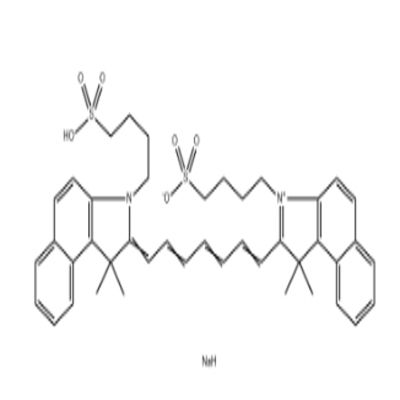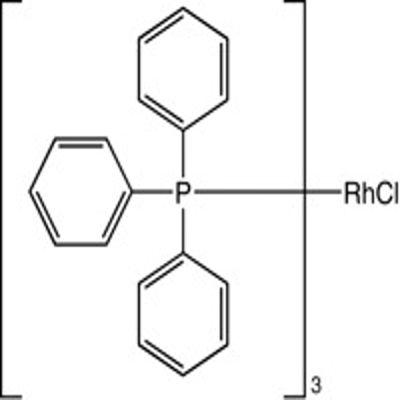Positive clinical results of bispecific antibody precision therapy for specific pancreatic cancer / lung cancer patients
-
Last Update: 2019-10-29
-
Source: Internet
-
Author: User
Search more information of high quality chemicals, good prices and reliable suppliers, visit
www.echemi.com
Today, merus announced the preliminary clinical results of its bispecific antibody mcla-128 (also known as zenocutuzumab) in the treatment of cancer patients carrying NRG1 gene fusion Mcla-128 is a bispecific antibody targeting HER2 and HER3 receptors and blocking the neuroregulatory protein (neuregulin) signaling pathway Data released at the 31st aacr-nci-eortc International Conference on molecular targets and cancer therapeutics showed that mcla-128 achieved the effect of reducing tumor volume in three patients receiving treatment Fusion variation of NRG1 gene refers to the fusion of the gene expressing NRG1 with other genes, resulting in the increase of NRG1 expression level The frequency of NRG1 fusion is not high According to merus, it occurs in about 3% of NSCLC patients, 1.5% of pancreatic cancer patients and less than 1% of other cancer types However, it has been shown that NRG1 gene fusion occurs repeatedly in KRAS wild-type pancreatic cancer This provides a potential target for patients who cannot benefit from KRAS inhibitors Mcla-128 developed by merus is a bispecific antibody that can combine with HER2 and HER3 receptors at the same time The activation of signal pathway of neuroregulatory protein requires HER3 and HER2 to combine to form heterodimer, while mcla-128 can prevent it from forming heterodimer with HER3 by combining with HER2, thus blocking the signal transmission of neuroregulatory protein Action mechanism of mcla-128 (picture source: reference [2]) Today, researchers at the memorial Sloan Caitlin Cancer Center (MSKCC) reported on the performance of three patients who received mcla-128 based on the expanded access program (EAP) These patients have been treated with multiple therapies, but the disease continues to progress EAP allows them to try innovative therapies that are in the experimental stage with no choice The results showed that mcla-128 reduced tumor volume in all three patients In one patient, the diameter of the tumor decreased 44% after 8 weeks of treatment and 54% after 5 months of treatment, reaching the standard of partial remission The patient has been on treatment for more than seven months Source: reference [2] The second patient had a 25% reduction in tumor diameter after 5 months of treatment He has been under treatment for more than seven months and is still under treatment One NSCLC patient had a 41% reduction in tumor diameter and an improvement in brain metastases after 5 months of treatment The patient has received six different types of pre-treatment, including afatinib He is still under treatment "These initial data provide an important proof of concept for mcla-128 to target tumors carrying NRG1 fusion," said Dr Alison Schram, a medical oncologist at MSKCC "It is worth noting that the prognosis of pancreatic cancer patients is very poor and the treatment options are limited The mechanism of mcla-128 is to target tumors carrying NRG1 gene fusion at the molecular level, which may be uniquely suitable for targeting this cancer driver " reference material: [1] Merus Bispecific Antibody MCLA-128 Shows Encouraging Early Clinical Activity in Patients with Cancers Harboring NRG1 Gene Fusions Retrieved October 28, 2019, from https://ir.merus.nl/news-releases/news-release-details/merus-bispecific-antibody-mcla-128-shows-encouraging-early [2] Pioneering Bispecific Antibodies MCLA-128 Presented Data and Program Update Retrieved October 28, 2019, from https://ir.merus.nl/static-files/21db931a-51d6-40de-b11f-03b48b78769b [3] Merus charts early promise for cancer drug targeting NRG1 fusions Retrieved October 28, 2019, from https:// A kind of
This article is an English version of an article which is originally in the Chinese language on echemi.com and is provided for information purposes only.
This website makes no representation or warranty of any kind, either expressed or implied, as to the accuracy, completeness ownership or reliability of
the article or any translations thereof. If you have any concerns or complaints relating to the article, please send an email, providing a detailed
description of the concern or complaint, to
service@echemi.com. A staff member will contact you within 5 working days. Once verified, infringing content
will be removed immediately.







